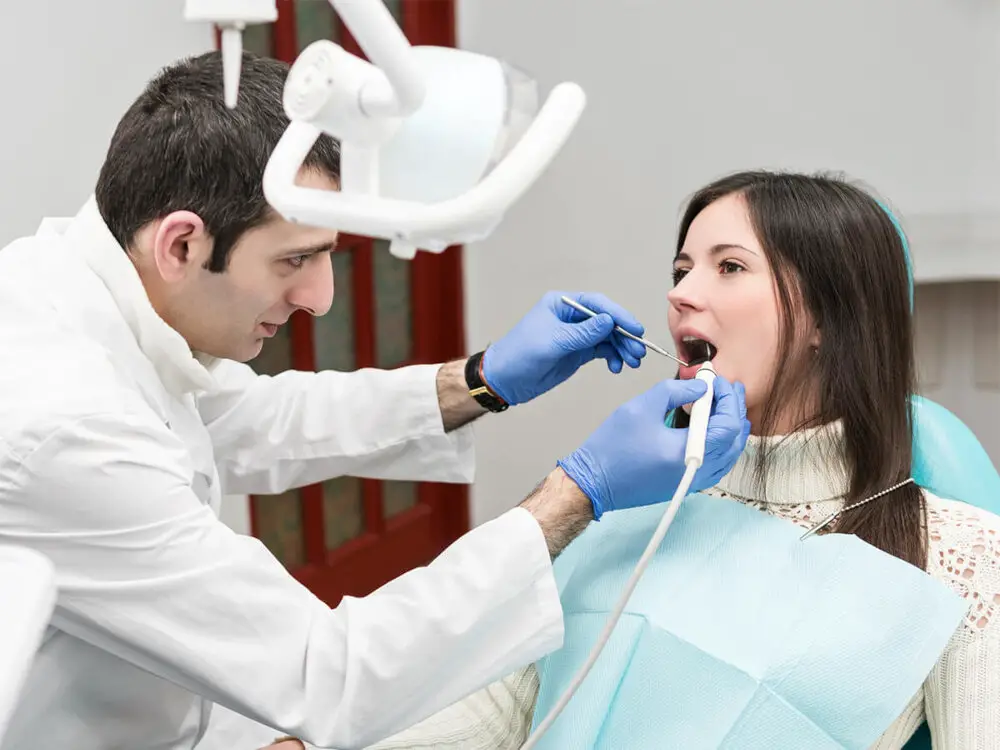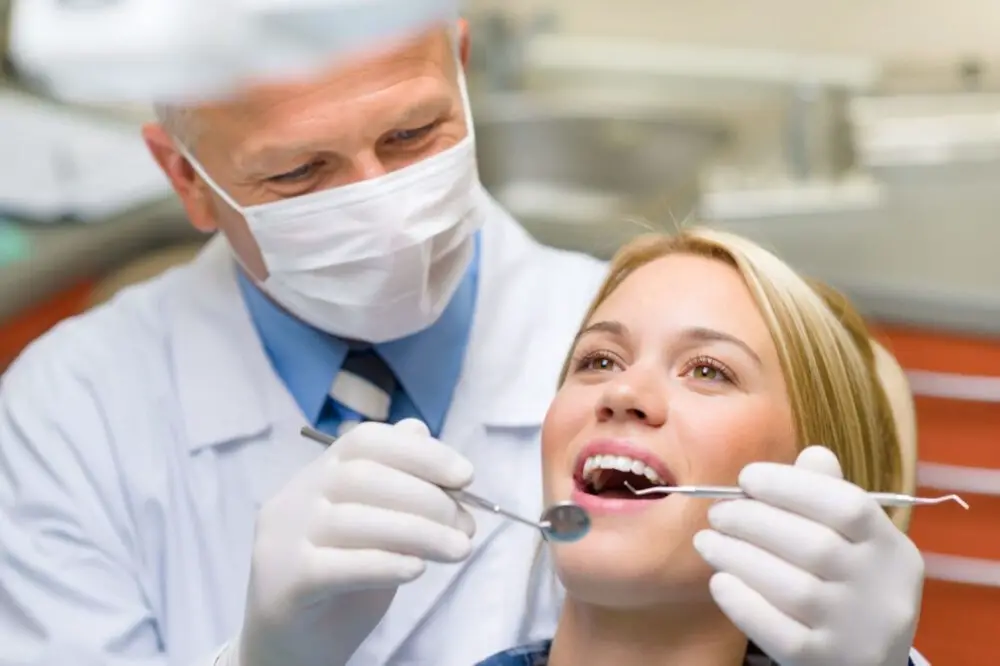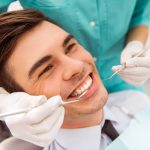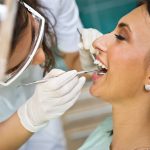Quick Tips on Speeding Up Wisdom Teeth Recovery: A Comprehensive Guide

Wisdom teeth recovery can be a painful and uncomfortable experience, but it doesn’t have to be. With the right knowledge and care, you can speed up the healing process and minimize the discomfort. This comprehensive guide offers quick and easy tips that can help you recover from wisdom teeth surgery faster and more efficiently. The recovery period after wisdom teeth extraction can vary from person to person, depending on factors such as age, overall health, and the complexity of the procedure. However, there are several proven methods that can help you recover quickly and avoid complications such as infection or dry sockets. From managing pain to eating the right foods, this guide covers everything you need to know to make your wisdom teeth recovery as smooth and painless as possible.
Wisdom teeth, also known as third molars, are the last set of teeth to emerge in the mouth, usually between the ages of 17 and 25. Most people have four wisdom teeth, one in each corner of the mouth. However, some people may have fewer or none at all. Wisdom teeth can cause problems like impaction, infection, and overcrowding, leading to pain and discomfort. Therefore, it is essential to keep good oral hygiene and visit the dentist regularly to monitor the development and potential problems of wisdom teeth. Recovery after wisdom teeth removal can take a few days to a week, but following proper post-operative care, such as taking pain medication, using ice packs, and avoiding hard foods, can help speed up the process.
Wisdom teeth extraction is a common dental procedure that involves removing the molars located at the back of the mouth. This procedure is often necessary due to a variety of reasons, including overcrowding, impaction, infection, and decay. Overcrowding occurs when there is not enough space in the mouth to accommodate the new teeth, causing them to grow in at an angle or push against adjacent teeth. Impaction can occur when the teeth are blocked by other teeth or bone, preventing them from fully emerging. Infection and decay can also occur when the teeth are difficult to clean or reach with a toothbrush, leading to the buildup of bacteria and food particles. Wisdom teeth extraction is typically recommended to prevent these issues from occurring and to promote good oral health.
Wisdom teeth recovery is the process of healing after the extraction of wisdom teeth. This procedure is commonly done to prevent complications such as infections, crowding, and gum disease. Recovery time varies depending on the individual, but typically takes about one to two weeks. During this time, patients may experience pain, swelling, and bleeding. It is important to follow post-operative instructions provided by the dentist or oral surgeon to ensure proper healing. This may include taking pain medication, applying ice to reduce swelling, and avoiding certain foods. With proper care, patients can speed up their wisdom teeth recovery and return to their daily routines as soon as possible.
Managing Pain and Swelling

Managing pain and swelling is crucial for a speedy recovery after wisdom teeth extraction. It is normal to experience some discomfort and swelling, but there are several measures you can take to manage these symptoms. Firstly, make sure to take the prescribed pain medication as directed by your dentist or oral surgeon. These medications are specifically chosen to manage post-operative pain and should not be substituted with over-the-counter pain relievers without consulting your healthcare provider. Additionally, you can apply a cold compress to the affected area to reduce swelling and discomfort. A cold compress can be made by wrapping a bag of ice or frozen peas in a towel and holding it against your cheek for 20 minutes at a time. It is important to avoid applying heat to the area as it can worsen swelling. Another effective way to manage pain and swelling is to maintain good oral hygiene. Keeping the extraction site clean and free of debris can help prevent infection and promote healing. You can rinse your mouth gently with warm salt water (1 teaspoon of salt in 8 ounces of water) 24 hours after surgery and then after meals and before bed. Avoid using mouthwash for the first week after surgery as it can irritate the extraction site. Additionally, you should avoid smoking or using any tobacco products as they can delay healing and increase the risk of complications. Following these tips can help you manage pain and swelling and promote a speedy recovery after wisdom teeth extraction.
Applying ice packs is an effective and simple way to alleviate pain and reduce swelling after wisdom teeth extraction. Ice packs can be applied on the affected area for 10-20 minutes at a time, with a break of at least 10 minutes in between. Ice packs work by constricting blood vessels in the affected area, which reduces inflammation and numbs the pain. It is essential to wrap the ice pack in a towel or cloth to prevent direct contact with the skin, which can cause frostbite. It is recommended to apply ice packs for the first 48-72 hours after surgery, after which warm compresses can be used to promote blood flow and promote healing.
Taking prescribed painkillers is an essential aspect of recovering from wisdom teeth removal surgery. These medications, such as ibuprofen or acetaminophen, can help alleviate the pain and discomfort caused by the procedure. It is important to follow the instructions provided by the dentist or oral surgeon regarding dosage and frequency of the medication. Additionally, patients should avoid taking aspirin as it can increase bleeding. It is recommended to take the painkillers with food or a full glass of water to avoid stomach irritation. While painkillers can be helpful, they should not be relied upon solely for pain management. Patients should also incorporate other recovery tips, such as ice packs and a soft food diet, for a speedy and successful recovery.
Using a saltwater rinse is a simple yet effective way to speed up the recovery process after wisdom teeth removal. The rinse helps to reduce inflammation and prevent infection by killing bacteria in the mouth. To make the rinse, mix a teaspoon of salt in a cup of warm water and swish it around your mouth for about 30 seconds before spitting it out. Repeat this several times a day for the first few days after surgery. The saltwater rinse is a natural and cost-effective solution that can provide significant relief from pain and discomfort associated with wisdom teeth extraction. It is important to note that while the rinse can promote healing, it should not replace proper dental hygiene practices like brushing and flossing.
Eating and Drinking After the Surgery

After undergoing wisdom teeth surgery, it is crucial to follow the post-operative instructions given by the dental surgeon to speed up the recovery process. One of the most important instructions is to be mindful of what you eat and drink after the surgery. Soft and easy-to-chew foods are recommended to avoid any pressure on the surgical site. It is best to stick to a liquid or semi-solid diet for the first few days until the swelling and pain subsides. A good option is to consume broths, soups, smoothies, and purees that are packed with nutrients to aid the healing process. It is also important to stay hydrated by drinking plenty of water, but using a straw should be avoided as it may dislodge the blood clot and hinder the healing process. While it is tempting to indulge in your favorite foods after a few days, it is best to avoid hard, crunchy, and spicy foods as they can cause discomfort and irritation to the surgical site. Foods that require a lot of chewing, such as meat and nuts, should also be avoided. Additionally, alcohol and carbonated drinks should be avoided as they can delay the healing process and cause dry socket, a painful condition where the blood clot dislodges or dissolves. By following a soft, nutritious diet and avoiding hard and crunchy foods and drinks, you can aid your body’s recovery process and ensure a speedy recovery.
After a wisdom teeth extraction, it is important to follow a soft food diet to avoid any discomfort or pain caused by chewing. Some soft food options that can be included in your diet are mashed potatoes, scrambled eggs, smoothies, soup, oatmeal, yogurt, and soft fruits like bananas or avocados. These food options are easy to swallow and digest, and also provide the necessary nutrients required for a speedy recovery. Furthermore, it is recommended to avoid spicy, acidic, and crunchy foods, as they can irritate the affected area and slow down the healing process.
Drinking sufficient amounts of water is an essential aspect of speeding up wisdom teeth recovery. Wisdom teeth removal can cause swelling, inflammation, and pain in the affected area. Drinking plenty of water helps to reduce the risk of infection, flush out toxins, and promote healing. Water also helps to keep the mouth moist, which is particularly important after wisdom teeth removal as dryness can cause discomfort and delay the healing process. It is recommended to drink at least eight glasses of water a day to keep the body hydrated and support the recovery process. Additionally, avoiding caffeine, alcohol, and sugary drinks can further aid in the healing process.
When it comes to speeding up wisdom teeth recovery, avoiding certain foods and drinks is crucial. Hard, crunchy, or sticky foods can irritate the surgical site, making it harder for the wound to heal properly. This includes nuts, chips, popcorn, and candy. It’s also important to stay away from hot or spicy foods that can irritate the area, causing pain and discomfort. Alcohol and carbonated drinks should also be avoided, as they can slow down the healing process and potentially cause dry socket. Instead, opt for soft foods like mashed potatoes, soup, and smoothies that are easy to swallow and won’t irritate the surgical site. Drinking plenty of water is also important to stay hydrated and aid in the healing process. By avoiding certain foods and drinks, you can ensure a speedy and comfortable recovery after wisdom teeth removal.
Oral Hygiene After the Surgery

After undergoing wisdom teeth surgery, it is crucial to take care of your oral hygiene to ensure a speedy recovery. The first 24 hours after surgery, avoid rinsing your mouth to allow the blood clot to form and prevent bleeding. After that, rinse your mouth gently with saltwater or a prescribed mouthwash to reduce inflammation and remove food particles. Brush your teeth gently, and avoid the surgical area to prevent any irritation or damage to the blood clot. Avoid using a straw, as the suction can dislodge the clot and lead to bleeding. Keep your head elevated while sleeping to reduce swelling and alleviate pain. Maintaining good oral hygiene after surgery is essential to prevent infection and promote healing. Continue to rinse your mouth with saltwater or mouthwash for a few days after surgery, and brush your teeth gently twice a day. If you experience any bleeding or swelling, apply a cold compress to the affected area for 20 minutes at a time. Avoid smoking and consuming alcohol, as they can delay healing and increase the risk of infection. Follow your dentist’s instructions, take any prescribed medication as directed, and attend your follow-up appointments to ensure a successful recovery. Good oral hygiene practices after surgery can make all the difference in a speedy and comfortable recovery.
When it comes to wisdom teeth recovery, brushing your teeth is an important part of the healing process. However, it’s crucial to remember to brush gently. Your mouth will be sensitive and sore from the extraction, and brushing too hard can cause additional pain and irritation. Use a soft-bristled toothbrush and be gentle when brushing around the extraction site. It’s also important to avoid rinsing your mouth vigorously, as this can dislodge the blood clot and prolong healing time. By taking care to brush gently, you can speed up your wisdom teeth recovery and get back to your daily routine as quickly as possible.
During the recovery process of wisdom teeth, it’s essential to avoid spitting and rinsing too hard. Spitting forcefully or frequently can dislodge the blood clot that forms in the socket, leading to a painful condition called dry socket. Additionally, rinsing too hard can cause irritation, bleeding, and delay the healing process. Instead, gently rinse your mouth with warm saltwater several times a day to keep the area clean and reduce swelling. Using a straw or smoking should also be avoided as the suction can cause the blood clot to dislodge. By following these simple tips, you can speed up your recovery and prevent any complications.
If your dentist or oral surgeon prescribes a special mouthwash for your wisdom teeth recovery, make sure to use it as directed. This mouthwash may contain ingredients that help reduce inflammation, kill bacteria, and promote healing in the affected area. It’s important to follow the instructions carefully to ensure that you get the maximum benefits from the mouthwash. Using the mouthwash in addition to other recommended treatments such as pain relief medication, warm saltwater rinses, and proper oral hygiene can help speed up your recovery and minimize discomfort. Remember to always consult with your healthcare provider before using any new products or treatments during your recovery.
Taking Care of Yourself During Recovery

When it comes to recovering from wisdom teeth removal, taking care of yourself is crucial to ensuring a smooth and speedy recovery. One of the most important things you can do for yourself during this time is to rest. Resting allows your body to focus on healing and reduces the risk of complications. It’s also important to avoid strenuous activities and exercise for at least a week after the surgery. When you do resume physical activity, be sure to start slowly and gradually increase the intensity as your body allows. In addition to rest, proper nutrition is also essential for a speedy recovery. Stick to soft, easy-to-eat foods such as soup, mashed potatoes, and smoothies for the first few days after the surgery. Avoid foods that are hard, crunchy, or spicy, as they can irritate the surgical site and cause discomfort. Drinking plenty of water is also important to keep your body hydrated and promote healing. Finally, be sure to follow your dentist’s instructions for post-operative care, including taking any prescribed medications and attending follow-up appointments. By taking care of yourself during the recovery process, you can minimize pain and discomfort and ensure a successful outcome.
Getting enough rest is crucial for a speedy recovery after wisdom teeth extraction surgery. It is recommended to get at least 8 hours of sleep per night and to take it easy during the day. Avoiding strenuous activities and taking short naps can also help the body recover faster. Adequate rest allows the body to focus its energy on healing and repairing the damaged tissues. Additionally, getting enough rest can help alleviate the pain and discomfort associated with wisdom teeth extraction. It is important to listen to your body and give it the rest it needs to recover fully.
One of the most important things to remember when recovering from wisdom teeth removal is to refrain from smoking or consuming alcohol. Smoking can delay the healing process by reducing blood flow and increasing the risk of infection. Additionally, the suction created while smoking can dislodge the blood clot that forms in the extraction site, which can lead to a painful condition called dry socket. Similarly, alcohol can also slow down the healing process and increase the risk of bleeding. It is essential to avoid these substances for at least 24-48 hours after the procedure to ensure a smooth and speedy recovery.
Avoiding physical activities can be tempting during wisdom teeth recovery, especially when experiencing pain and discomfort. However, it is essential to continue light exercise and movement to promote circulation and prevent blood clots. Simple activities such as taking a short walk, doing gentle yoga or stretching can help speed up the healing process. It is important to avoid high-intensity workouts, weightlifting or any activity that can put pressure on the jaw or mouth. If experiencing severe pain or discomfort during physical activity, it is recommended to take a break and rest until feeling comfortable to resume light exercise. Remember, movement is crucial for a faster and smoother recovery.
The recovery process after wisdom teeth extraction can be a challenging and painful experience. However, there are several ways to speed up the recovery process and alleviate discomfort. Firstly, it is important to rest and avoid strenuous activities for a few days after the surgery. Applying an ice pack to the affected area can also help to minimize swelling and discomfort. Keeping the mouth clean by rinsing with saltwater can prevent infection and promote healing. It is advisable to avoid hard or crunchy foods and opt for soft, easy-to-chew foods. Lastly, taking pain medication and following the dentist’s instructions can ensure a smooth and speedy recovery. These tips will help you recover faster and make the healing process less painful.
It’s crucial to remember to follow your dentist’s instructions to ensure a smooth and speedy recovery after wisdom teeth extraction. Ignoring these instructions could lead to complications and prolong the healing process. Your dentist may advise you to avoid certain foods, refrain from smoking, and maintain proper oral hygiene to prevent infection. Additionally, they may prescribe pain medication and suggest using ice packs to reduce swelling. It’s essential to follow these guidelines carefully and seek your dentist’s advice if you have any concerns or questions. By adhering to your dentist’s instructions, you’ll be able to make a full and quick recovery, and get back to your normal routine in no time.
Asking questions or seeking help is an essential aspect of wisdom teeth recovery. It’s natural to feel overwhelmed or uncertain about the recovery process, but don’t let these emotions hinder your progress. Seek guidance from your dentist or healthcare provider if you experience any pain, swelling, or bleeding. Don’t hesitate to ask questions about the recovery process, diet, medication, or any concerns you may have. Remember, your health and well-being are essential, and seeking help can ensure a smoother and faster recovery. So, be proactive, ask questions, and seek help if needed to enjoy a successful and comfortable wisdom teeth recovery.
Conclusion

In conclusion, recovering from wisdom teeth surgery can be a challenging and uncomfortable process. However, by following these quick tips, you can speed up your recovery and make the experience more bearable. It is crucial to avoid certain foods, take pain medication as prescribed, and maintain good oral hygiene practices. Additionally, getting plenty of rest and staying hydrated can help your body heal faster. By being patient and following these guidelines, you can expect a quicker and smoother recovery from wisdom teeth surgery. Remember to always consult with your dentist or oral surgeon if you experience any severe pain or complications during the recovery process.







